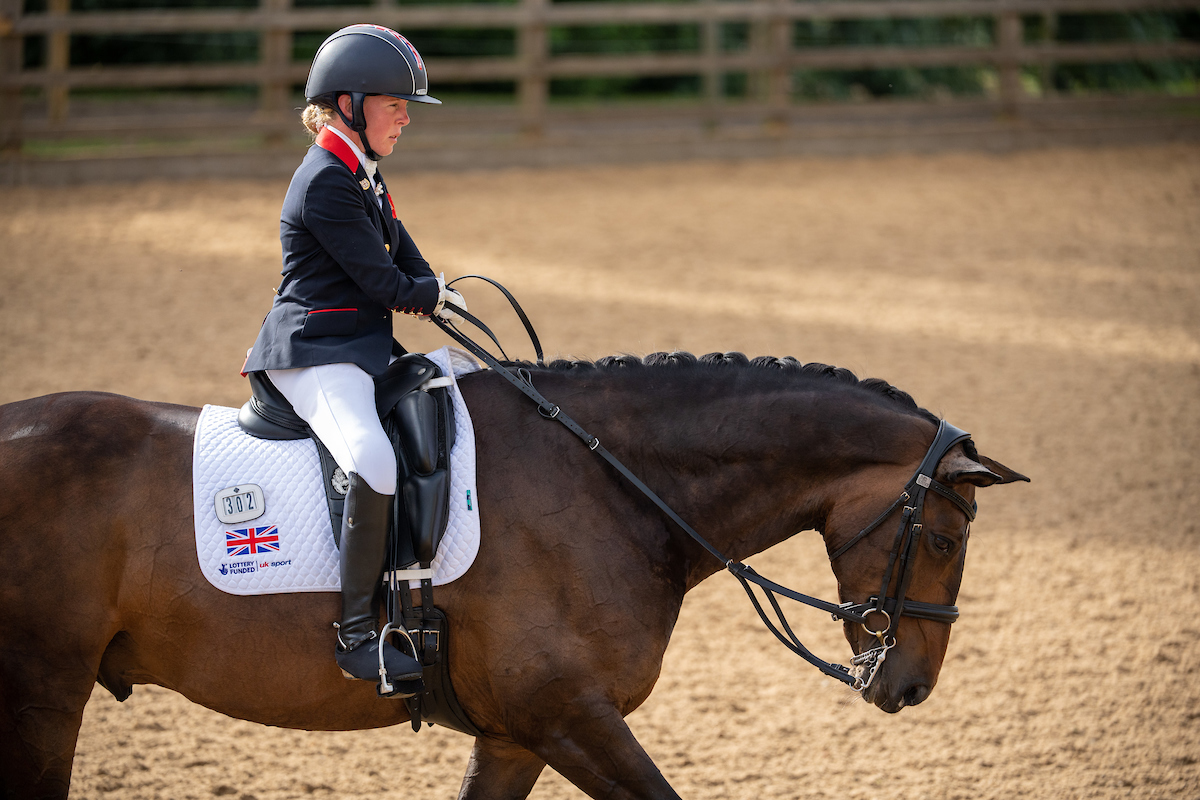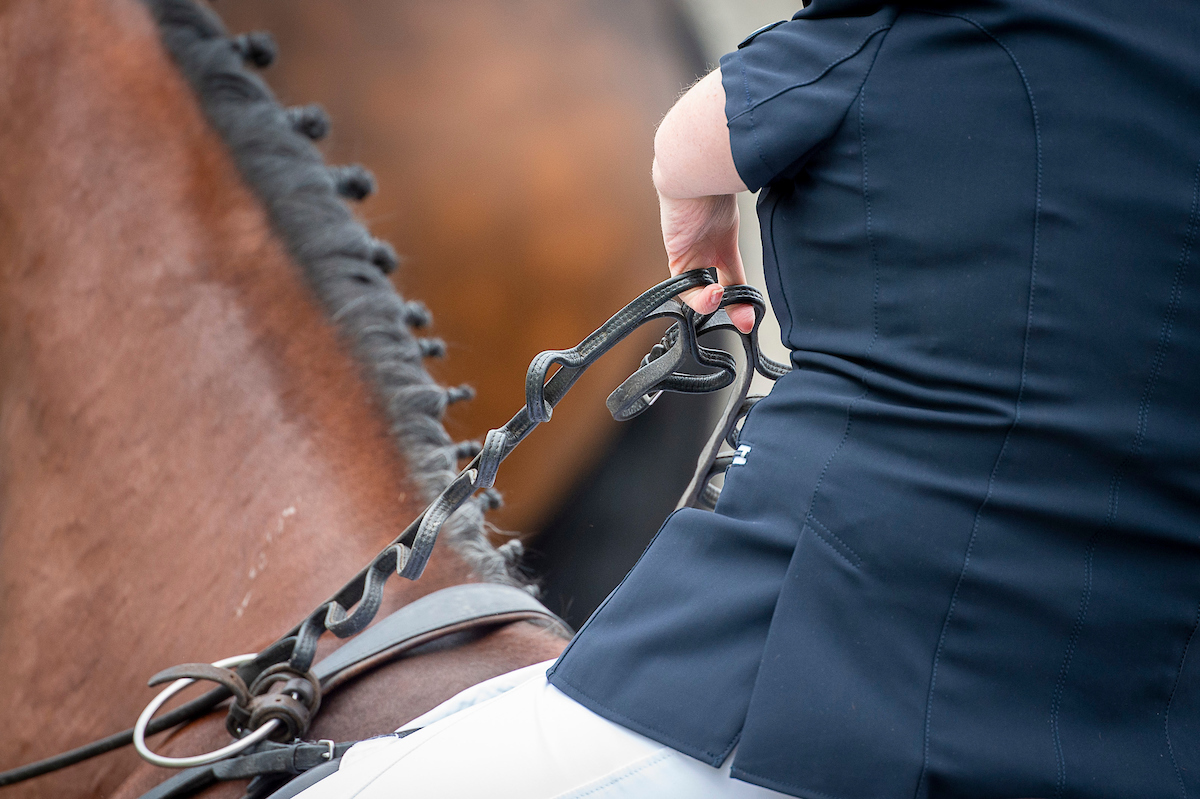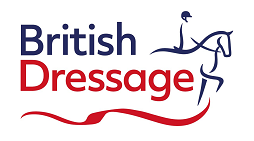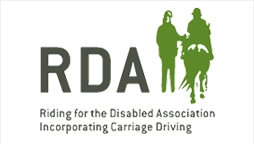Getting classified
**Keep an eye out for a new application process which will be implemented in EARLY 2026 **
New classification applications

The application to be classified for para competitions is a two-stage process:
Stage 1 – Completion of consent and registration forms below, including submission of any medical information such as Consultant reports, MRIs to help Classifiers assess your eligibilty. Forms need to be submitted via email to the British Equestrian Classification Coordinator, Emma Bayliss, for the Classification Working Group (CWG) to process and decide if you are eligible. Please allow six weeks for this process.
Stage 2 – If the CWG confirms the applicant has a medical condition(s) which meets the criteria, they will be invited to have an Athlete Evaluation (physical assessment) to be assessed if they meet the minimum impairment criteria at one of the hubs listed below.
The hubs are held in various locations throughout the year and you can select your preferred location on your application. We will do our best to accommodate you, however, there are a limited number of appointments at each Hub.
Athletes invited to attend a classification hub will need to pay via BACS before their appointment:
£75 new classification
£50 review classification.
You can find more information on the process flowchart and the application forms below.
Classification process_Physical Impairment
National Classification Registration Form
National Classification Consent Form
BEF National Para Equestrian Classification Rules 2026
General Data Protection Regulations (GDPR)
In accordance with GDPR, we will not hold a copy of your National PE Classification Registration form and medical information once your application has been fully processed. It is your responsibility to retain a copy of this information.
Eligible for BEF National classification?
If you have been invited to attend a hub for physical assessment – here's what to expect:
Classification Hub- what to expect
It is normal to feel apprehensive about this process or to have a list of questions. Our classifcation team are friendly and professional and more than happy to answer your queries before, during or after your classifcation.
NATIONAL CLASSIFICATION HUBS
| Date | Venue | Address | Application Deadline |
|---|---|---|---|
| Saturday 14 March 2026 | White Rocks Farm | Underriver, Sevenoaks, Kent TN15 0SL | Monday 2 February 2026 |
| Saturday 28 March 2026 |
BD Para Winter Championships Arena UK |
Allington Ln, Grantham NG32 2EF | Monday 16 February 2026 |
|
Saturday 25 April 2026 |
BHS Scotland | Suite A3, Stirling Agriculture Centre, Stirling FK9 4RN |
Monday 16 March 2026 |
| Saturday 11 - Sunday 12 July 2026 | Hartpury College, RDA National Championships | Hartpury, Gloucester GL19 3BE | Monday 1 June 2026 |
| October 2026 TBC | York |
|
|
| Saturday 14 November 2026 | RDA National Training Centre | Lowlands Equestrian Centre, Old Warwick Rd, Shrewley CV35 7AX | Monday 28 September 2026 |
Following the hub, if you are eligible you will then be issued with a classifcation card via email showing your grade, profile and any compensating aids and be added to the National Master Classifcation List. This list is shared with British Dressage.
Review classification
If you are due for a review, you must complete and submit the National Classification Review Form and Consent Form to the British Equestrian Classification Coordinator along with any recent medical documents which detail your impairment to Emma Bayliss. This will then be reviewed by the Classification Working Group and if eligible you will be invited to a hub for a review appointment.
National Classification Review Form
National Classification Consent Form
General Data Protection Regulations (GDPR)
In accordance with GDPR, we will not hold a copy of your National PE Classification Review Form and medical information once your application has been fully processed. It is your responsibility to retain a copy of this information.
NATIONAL VISUAL IMPAIRMENTS CLASSIFICATION
Visually impaired athletes must obtain an eligible classification grade from British Paralympic Association and have a confirmed medical diagnosis that is the cause of the visual impairment. Contact Emma Bayliss for a BPA application form. This will need completing by an Opthalmologist (not an Optician).
If you are eligible you will be invited to a VI Classifcation Hub run by Paralympics GB.
If you receive a B1 or B2 VI Classification grade, they are eligible for conversion into a para equestrian grade. Please note B3 is currently not eligible for para equestrian sport.
If you have a grade that is eligible for conversion, send your VI classification certificate and medical evidence of the confirmed diagnosis which has caused the vision impairment to the British Equestrian Classification Coordinator, Emma Bayliss so it can be converted into a para equestrian grade. You will then be issued with a classifcation card via email and added to the National Master Classifcation List. This list is shared with British Dressage.
2026 Paralympics GB VI Classifcation Hubs
28 February 2026 University of Hertfordshire, Hatfield
9 May 2026 Princess Alexander Eye Pavilian, Edinburgh
15 August 2026 York Hospital, York
October 2026 Shoreham, Sussex (date tbc)
International classification
An FEI International Classification will allow you to participate in international para equestrian competitions. It's important that you familiarise yourself with the FEI Para Equestrian Classification Rules. All the relevant application documents can be found on the FEI website for Para Dressage and Para Driving.
As the National Federation of Great Britain, British Equestrian acts as a liaison between the FEI and yourself. To apply for FEI International classification, you need to submit the following documents from the FEI website, using the relevant link above, to emma.bayliss@bef.co.uk.
- FEI Classification Request form
- Consent form
- FEI Diagnostic Form
- Recent medical evidence
The completed classifcation request form needs to be scanned rather than sent as a photo as this will need signing by the BEF before it is submitted to the FEI. The applications need to be sent in six to eight weeks prior to the competition that you would like to be classified at. If eligible, you will be invited to a Classifcation Hub. The FEI will release appointment times for the hub approximately five days before the relevant CPEDI event.
Classifcation Hubs take place at CPEDI's. You can see a list of dates and venues on the British Dressage Major Dates page. For international classifcation, you will have a physical assessment in a classroom, the same as at national classifcation, and you may also be required to have an observational assessment (OA) where you will be observed riding in competition. You can read more about this in Chapter 14 of the FEI Classifcation Rules. You will be informed in writing after your appointment regarding your profile and grade.
International Classification - Navitgate website & info - Feb 2024.pdf
Intro to FEI International Classification - Crib sheet Feb 2024.pdf
Compensating aids

Compensating Aids are special pieces of equipment to aid an athlete in para competitions, but don’t give them an advantage over other athletes in the same grade – for example, an athlete who struggles to grip the reins could use looped reins as a compensating aid. Athletes are encouraged to use as few aids as possible.
A list has been compiled to maintain consistency for para dressage and para driving:
Compensating Aids 2024 Para Dressage
Compensating Aids 2024 Para Driving
APPLYING FOR NATIONAL COMPENSATING AIDS
There are three categories of Compensating Aids:
Standard Compensating Aids: These aids, other than approved saddlery or equipment as outlined in the British Dressage, RDA or British Carriagedriving rules, may be used by all graded para athletes in para competitions. They do not need to be listed on the athlete’s classification card.
Profile-Specific Compensating Aids: Other than approved saddlery, these aids may be used by athletes with the corresponding Profiles and Grades as outlined in the Compensating Aids document. These must be listed on the athlete’s classification card.
Non-Standard Compensating Aids: These aids are required by an individual athlete and are not listed or described specifically in the rules. These aids may include modifications to a Standard or Profile-Specific Compensating Aid, or a piece of non-standard equipment that’s been custom-made for an athlete.
Please note: all the equipment and aids must comply with Para Dressage and Para Driving rules and regulations.
To apply for compensating aids, you need to complete the National Request Form (below) for Compensating Aids and submit with supporting documentation which can include a written description of the aid and the reason why it is being requested, plus any photos, measurements, to the British Equestrian Classification Coordinator, Emma Bayliss.
National Request Form for Compensating Aids
APPLYING FOR INTERNATIONAL COMPENSATING AIDS
To apply for international compensating aids, you need to complete the FEI Request Form (below) for Compensating Aids and submit with supporting documentation which can include a written description of the aid and the reason why it is being requested, plus any photos, measurements, to the British Equestrian Classification Coordinator, Emma Bayliss. This will be submitted to the FEI for consideration and you will be informed of the outcome by Emma Bayliss.
Applying for a 'commander'
A commander calls out the movements in sequence to the athlete as they compete.
Those with a permanent memory impairment which impacts their ability to remember the sequence of movements required for the duration of a dressage test can apply and must produce evidence from a psychologist. You need to submit a Wechsler Memory Scale (WMS-IV) test or similar with a brief report to substantiate your request for a 'Commander'. Use the template letter below as a guidance when requesting the tests from a psychologist.
Commander: Psychologist template letter
FAQs
IF I AM ELIGIBLE TO HAVE A NATIONAL ATHLETE EVALUATION (PHYSICAL ASSESSMENT), DO I NEED TO BRING MY HORSE WITH ME?
No, you don't need to bring your horse with you. The Athlete Evaluation is carried out by two Classifiers in a clinical environment, and you will be asked to carry out a variety of movements and exercises.
WHAT DO I NEED TO KNOW ABOUT THE ATHLETE EVALUATION?
The Athlete Evaluation (physical assessment) is held in a clinical environment with two National PE Classifiers. It can take up to around an hour and we recommend you wear comfortable, loose-fitting clothing. You are welcome to bring a family member/support person to the appointment with you.
Further details of the Athlete Evaluation can be found in the National Para Equestrian Classification Rules below:
- Chapter 3: Athlete Evaluation (p12–16)
- Chapter 4: Athlete Evaluation and the Classification Panel (p17–21)
- Chapter 5: Grade Not Eligible (p22–23)
ARE INTELLECTUAL IMPAIRMENTS ELIGIBLE?
Intellectual disabilities are not currently eligible for para equestrian classification. However, British Dressage and Riding for the Disabled Association have collaborated and now run an Intellectual Impairments Championships – please contact British Dressage for more information. There are also some other options on the Physical Impairment and Eligibility page which are available to you.
Useful documents
Para classification privacy notice


